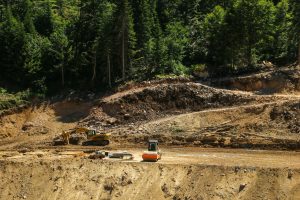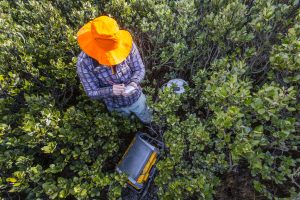Secure tenure is essential for safeguarding the existing forests against external forces. This is specifically true for forests managed by Indigenous Peoples, where much of the world’s carbon is stored. Recent research states that the recognition of customary tenure in these areas is a highly efficient and cost-effective way to reduce greenhouse gas emissions caused by deforestation.
As the world faces an urgent need to reduce carbon emissions from deforestation and forest degradation, more than 26 million hectares of forest are still being cut down every year. To understand the connection between land rights and climate change, it is crucial to recognise that most of the world’s forests are managed by local and indigenous communities.
Indigenous peoples and local communities customarily claim at least 50% of the world’s lands, but legally own only 10%, hindering their attempts to protect it. Strengthening the land and resource rights of Indigenous Peoples and local communities whose well-being is tied to their forests offers a unique and vital opportunity to combat climate change, and is one of the best nature-based solutions.

Recent research – captured in reports by the IPCC, IPBES, and others—shows that community land rights lead to lower deforestation rates, higher carbon storage, and higher biodiversity. Communities manage nearly 300 billion metric tons of carbon. Ensuring that Indigenous Peoples and local communities’ rights to these lands are recognised and protected is vital to keeping the forests standing, and the carbon from being released into the atmosphere. In countries that provide stronger legal rights to indigenous communities to own and manage forests, there is an overwhelmingly positive correlation with reduction of land degradation, and the stabilising of forested landscapes.
We estimate that 80% of the projects funded by the Tenure Facility will occur in countries with significant forest cover. The Tenure Facility will leverage additional donors and government investment in tenure rights to enhance the success of Nationally Determined Contributions (NDC), REDD+ and other climate, environment and development commitments, agreeing that secure tenure is a pre- condition for sustainable governance of land, forests and other natural resources.
The Tenure Facility brings national and/or local governments and indigenous and local community organisations together to focus on specific processes and issues so they can work together towards practical solutions. This includes support for communities´ own conservation initiatives and protected areas.
Secure tenure of forests and natural resources contributes to reduced deforestation – not automatically, but as a pre-condition for sustainable governance and management of land, water and other natural resources. Without clarified and secure tenure rights for Indigenous Peoples and local communities, conservation efforts in contested areas are likely to be counterproductive and could risk inflaming local tensions and violating fundamental human rights. Thus, the Tenure Facility aspires to be an effective mechanism contributing to the necessary conditions for successful climate change mitigation interventions, and sustainable natural resource governance.
